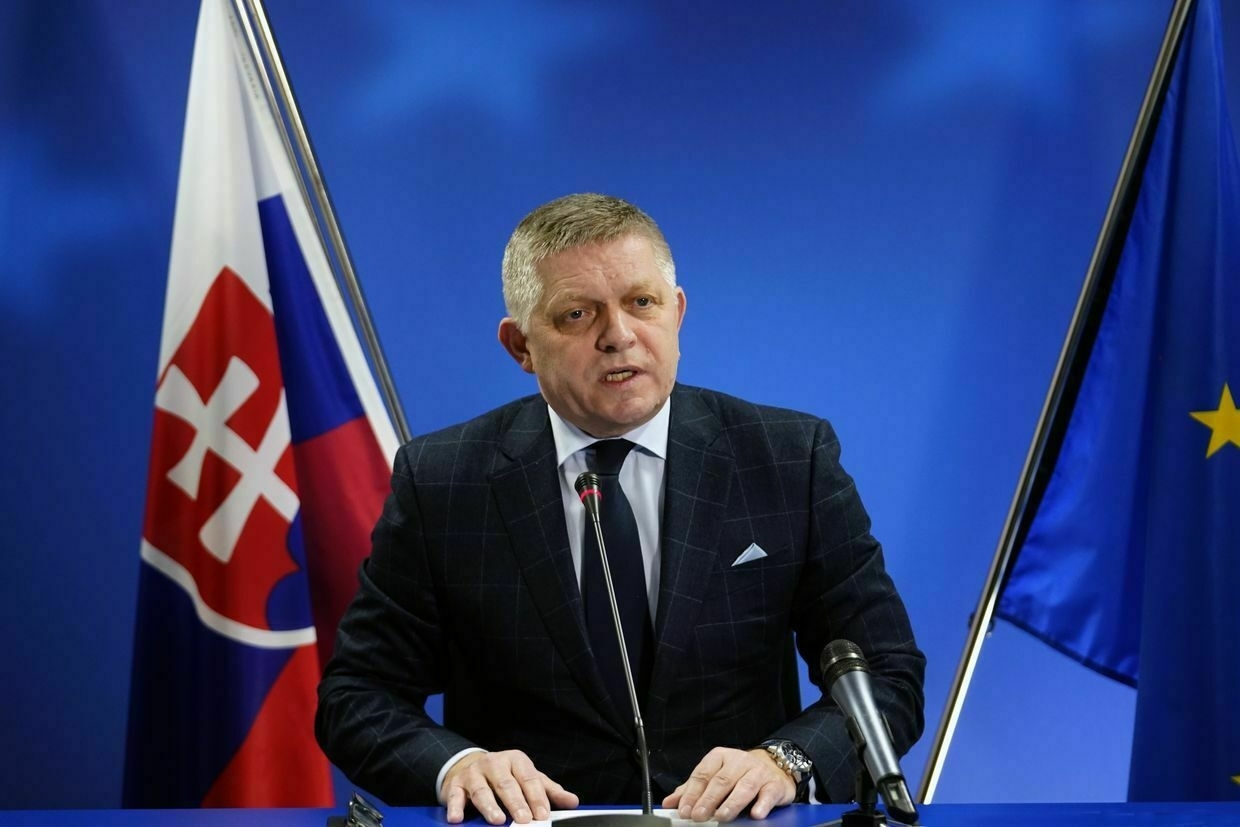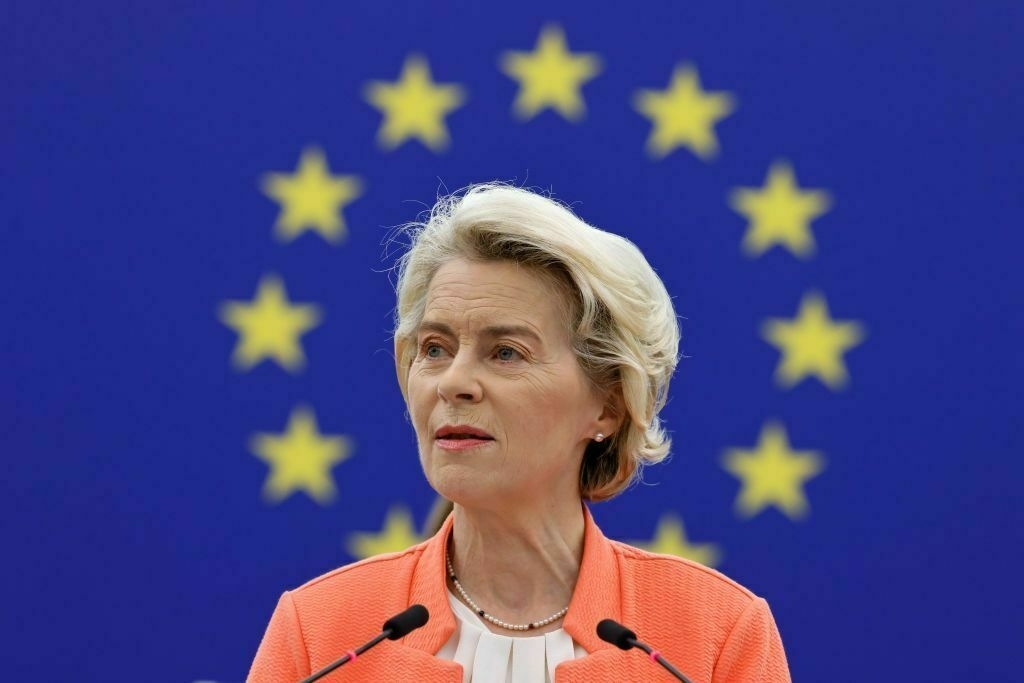
Slovak Prime Minister Robert Fico threatened on June 10 to veto the EU’s upcoming 18th sanctions package against Russia if concerns over Slovakia’s reliance on Russian gas and energy exports were not addressed.
The comments come as European Commission President Ursula von der Leyen announced on June 10 that the 18th package of European Union sanctions against Russia will include additional restrictions on energy, banking, and oil, among other areas.
The EU has proposed for the first time a ban on transactions involving the Nord Stream 1 and Nord Stream 2 pipelines, as well as a reduction in the oil price cap from $60 to $45 per barrel, as one-third of Russia’s government revenue still comes from oil exports, according to von der Leyen.
Fico said on Facebook that he would block additional sanctions unless the bloc finds “a real solution to the crisis situation that Slovakia would face following a complete halt in the supply of gas, oil, and nuclear fuel from Russia."
Historically, Slovakia has been heavily reliant on Russian gas and energy transfer, serving as a key transit hub for Russian exports to Western Europe.
Since taking office in 2023, Fico has also reversed Slovakia’s previous pro-Ukraine policy, ending military aid to Kyiv and questioning the value of EU sanctions on Russia.
EU foreign policy decisions, including sanctions, require unanimous approval by all member states. A Slovak veto could force concessions or delay enforcement in future rounds.
Fico’s comments come as Slovakia’s parliament passed a resolution on June 5 urging the government to oppose any new international sanctions or trade restrictions against Russia, citing alleged negative economic impacts. The non-binding resolution argued that sanctions imposed in response to Russia’s full-scale invasion of Ukraine have driven up energy prices, disrupted supply chains, and harmed Slovak industry.
Fico subsequently vowed on June 8 that he would veto new sanctions if they harm national interests, adding that he would not support any measure that halts Russian fuel imports that are used to power Slovakia’s nuclear power plants.
Unlike Ukraine-skeptic Hungarian Prime Minister Viktor Orban who has repeatedly obstructed and delayed the bloc’s sanctions against Russia and military aid for Ukraine, Slovakia has not previously attempted to block EU sanctions.
On May 6 the EU presented a detailed roadmap to fully sever the bloc’s energy dependence on Russia by 2027. National governments, including Kremlin-friendly Hungary and Slovakia, will be required to submit individual phase-out plans by year’s end.
 The Kyiv IndependentKateryna Hodunova
The Kyiv IndependentKateryna Hodunova
